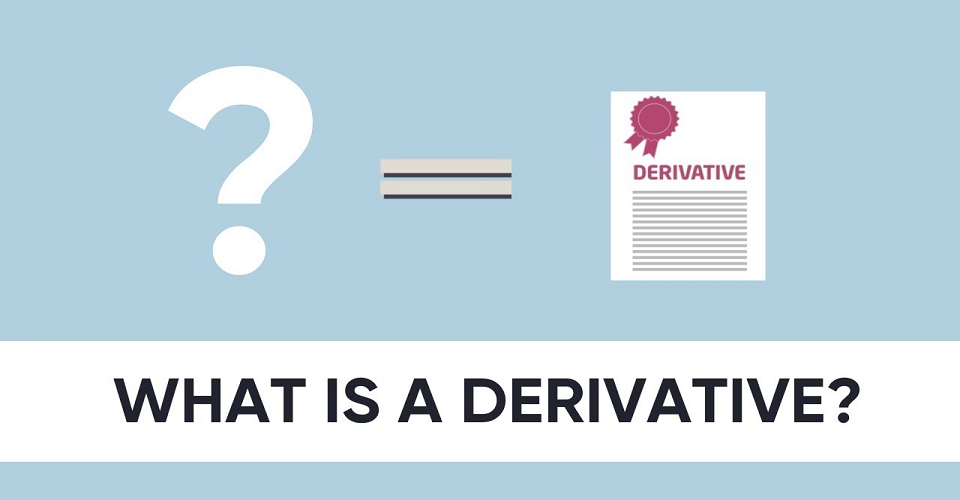Blog
What is a Financial Derivatives?

Derivative contracts are often used by large companies so as to better handle risks, as well as to make their cash flows more even and constant. This also leads to more predictability, which can in turn help to boost these companies stock prices.
Derivatives work on small premium, and so there is no need for large sums of money to be invested. These tradable products or contracts essentially derive their value from underlying assets which can include currencies, stocks, indices and commodities. The utility of financial derivatives has grown from simply reducing the impact of exchange rate changes to also mitigate other kinds of risks, and manage to access more opportunities in the market.
There are different types of derivatives, including:
- Futures generally used for commodities, currencies or shares with the aim of offsetting risk. The pricing will change according to the current demand and supply of the asset.
- Options, traders buy or sell (call or put) an underlying asset at a set price on a particular date or before it. There is no obligation to buy the asset, unlike with futures.
- CFDs enable you to speculate on the changes in the price of shares, currencies, and indices. However you would not be buying the actual asset but only speculating on the price movements.
- Forward contracts these are set up with a rather informal agreement and traded through a broker. The price is established and paid for on a particular date in the future. This type of contract can be renegotiated or closed or even extended against a premium.
- Swaps these are customised OTC contracts made between two traders. A common example is when two parties exchange cash flows or liabilities for different securities.
Derivatives are offered over the counter or via an exchange. Their value depends on the performance of the underlying asset as well as on the particular contract conditions. Prices are locked in before the actual trade takes place and as a result the trader will be protecting himself from the risks associated with unfavourable changes in the price.
Derivatives can be great additions to a portfolio as they allow the investor to access different markets and opportunities. Their structure and the possibility of leverage also allows investors to make the most from arbitrage opportunities. Derivatives also allow you to hedge risk exposure in the market. To do this the investor will buy a derivate that moves in the opposite direction of another asset owned. So there are various benefits to trading with financial derivates.
Derivatives work on small premium, and so there is no need for large sums of money to be invested. These tradable products or contracts essentially derive their value from underlying assets which can include currencies, stocks, indices and commodities. The utility of financial derivatives has grown from simply reducing the impact of exchange rate changes to also mitigate other kinds of risks, and manage to access more opportunities in the market.
There are different types of derivatives, including:
- Futures generally used for commodities, currencies or shares with the aim of offsetting risk. The pricing will change according to the current demand and supply of the asset.
- Options, traders buy or sell (call or put) an underlying asset at a set price on a particular date or before it. There is no obligation to buy the asset, unlike with futures.
- CFDs enable you to speculate on the changes in the price of shares, currencies, and indices. However you would not be buying the actual asset but only speculating on the price movements.
- Forward contracts these are set up with a rather informal agreement and traded through a broker. The price is established and paid for on a particular date in the future. This type of contract can be renegotiated or closed or even extended against a premium.
- Swaps these are customised OTC contracts made between two traders. A common example is when two parties exchange cash flows or liabilities for different securities.
Derivatives are offered over the counter or via an exchange. Their value depends on the performance of the underlying asset as well as on the particular contract conditions. Prices are locked in before the actual trade takes place and as a result the trader will be protecting himself from the risks associated with unfavourable changes in the price.
Derivatives can be great additions to a portfolio as they allow the investor to access different markets and opportunities. Their structure and the possibility of leverage also allows investors to make the most from arbitrage opportunities. Derivatives also allow you to hedge risk exposure in the market. To do this the investor will buy a derivate that moves in the opposite direction of another asset owned. So there are various benefits to trading with financial derivates.